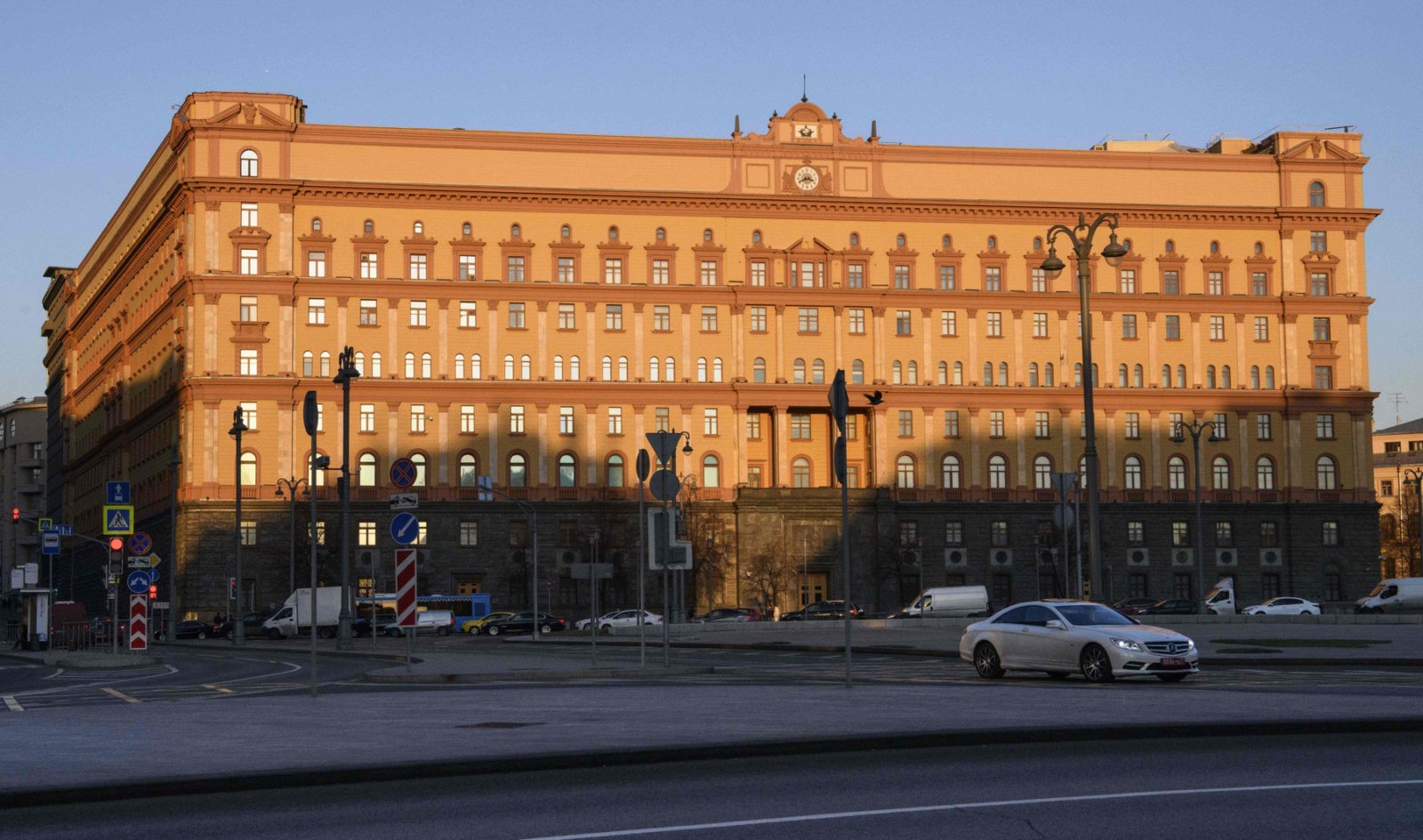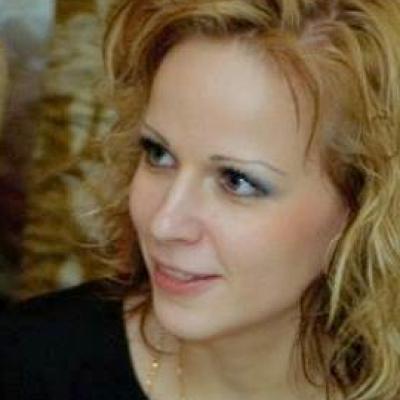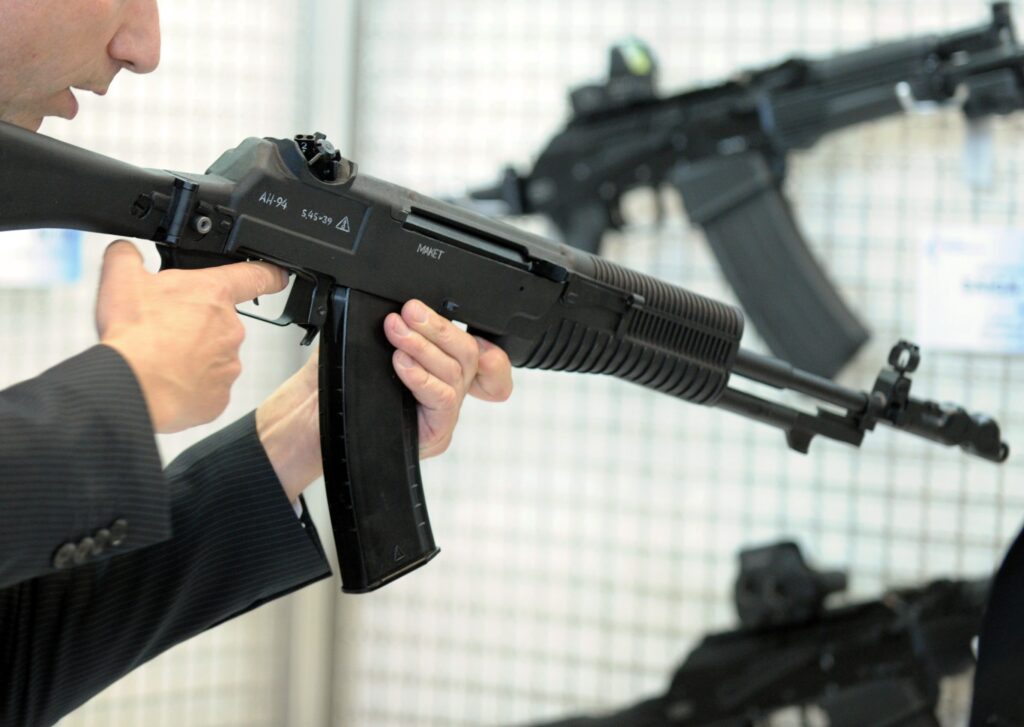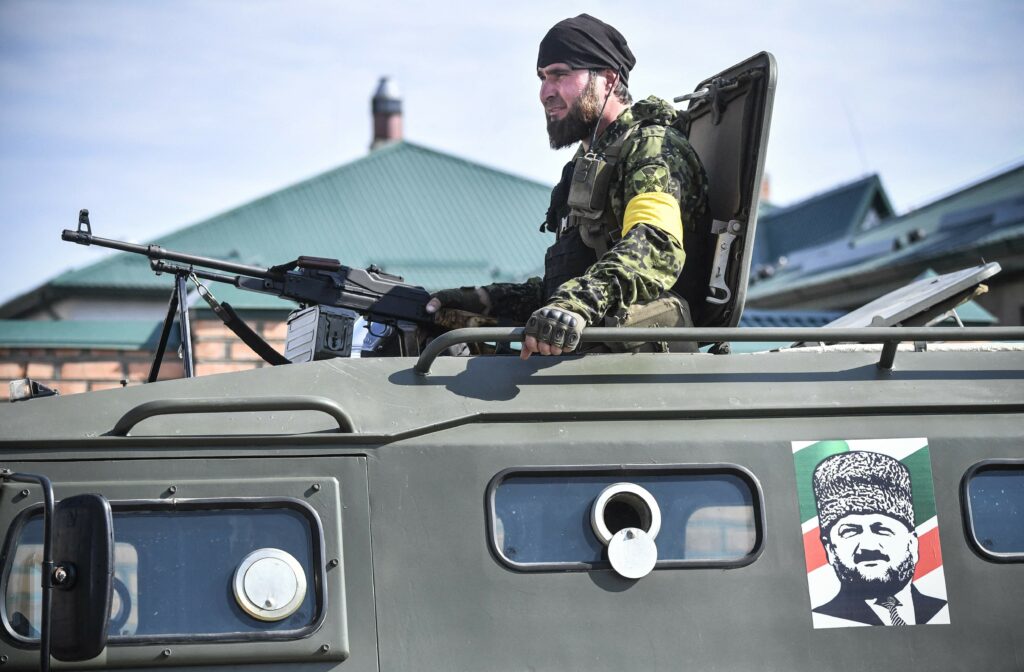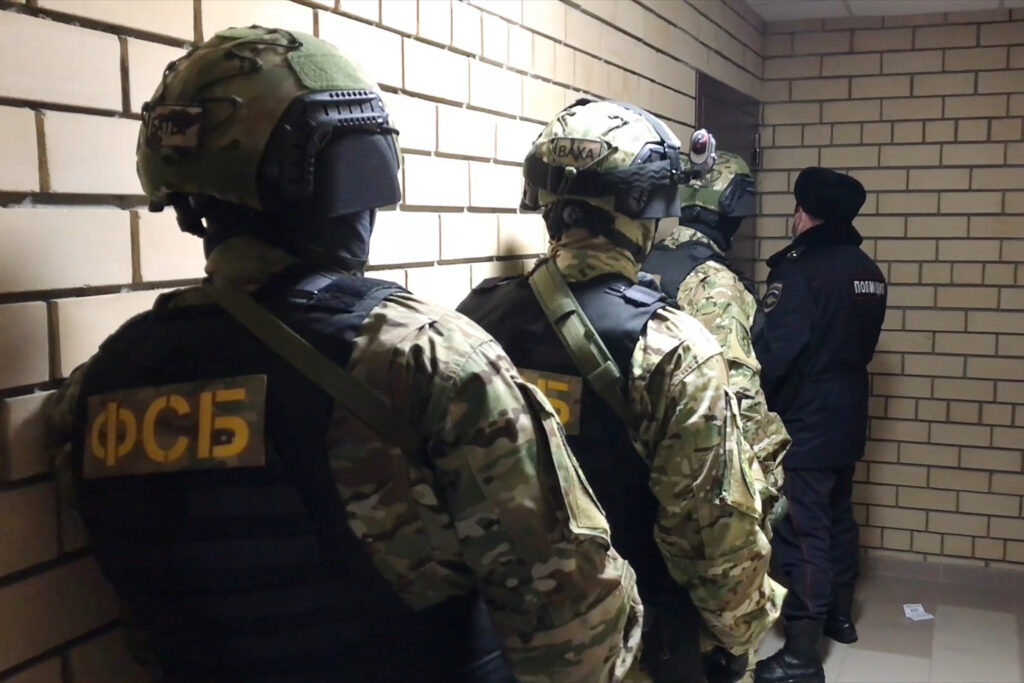One of the most noticeable but least understood events in Russia in recent months has been the wave of mysterious arrests within the FSB, the country’s domestic security service. On 26 April, the Basmanny District Court in Moscow sentenced two high ranking intelligence officers who had been detained on suspicion of fraud. These were colonel Dmitry Frolov, former deputy director of the FSB’s department for financial crimes (also known as “Department-K”) and his subordinate colonel Andrey Vasilyev, who worked in the second subdivision of the same department, which is responsible for supervising the banking sector.
Also detained alongside Frolov and Vasilyev was Kirill Cherkalin, acting director of the second subdivision, who is suspected of large scale bribery. The main intrigue here is tied to the fate of the infamous Ivan Tkachev, an FSB general who is often mentioned by the Russian media as nothing less than the key author of all the agency’s most recent anti-corruption investigations. Tkachev is also named as a participant in several large political conflicts and a key figure in “Sechin’s special forces.”
The arrested colonels Frolov, Vasilyev, and Cherkalin launched their careers when Department-K was led by general Viktor Voronin (who held the post from 2004 to 2016.) In May 2016, against the backdrop of a clash between various siloviki, or security officials, Voronin was dismissed. The FSB’s department of internal security, led by Sergey Korolyov, then launched a powerful campaign under the auspices of the so-called “customs case.” In the course of investigations Yevgeny Murov, director of the department of internal security and one of Russia’s most influential siloviki, was dismissed from his post. The billionaire Dmitry Mikhelchenko, a friend of Murov, was arrested and sentenced to five years in a penal colony for smuggling alcohol. According to sources cited at the time, all these cases were overseen by the influential general Oleg Feoktistov, deputy director of the FSB’s department of internal security, and Ivan Tkachev, head of the same department’s sixth service.
Feoktistov and Tkachev were named “Sechin’s special forces” by the Russian media. This group was allegedly formed on the initiative of the current head of RosNeft, Igor Sechin. The “custom case” also led to a purge within the ranks of the FSB’s economic security service, which had long been at loggerheads with the department of internal security. Sergey Korolyov then left his post as director of the department of internal security and took up a new position with the economic security service. Feoktistov soon left the FSB to work for RosNeft, where he helped “work on” Minister of Economic Development Aleksey Ulyukayev, who was later arrested. While Feoktistov never returned to the FSB, Tkachev, contrary to expectations, became the head of Department-K (essentially taking over the role of somebody whose downfall he had engineered.) The previous head of the economic security service Yury Yakovlev left the FSB to become deputy head of RosAtom.
After Korolyov took over the economic security service, his young protege Aleksey Komikov took over his previous role as head of the internal security service. Nevertheless, on 17 May, Rosbalt reported, referring to a “source in the security services,” that the Komikov had been relieved of these duties and appointed deputy director of the FSB’s military counterintelligence service.
Now that Cherkalin has been arrested and Tkachev has the upper hand, a question arises: was this all an attack on the latter? One theory holds that Feoktistov and Tkachev established a circle within the security services which was autonomous and able to exert its own influence. The two security officials were not simply Korolyov’s men, but were in fact counterweights to his influence. According to information from various sources, it was namely due to the stringent positions of Korolyev that Feoktistov was unable to return to the FSB after Ulyukayev’s arrest. Another theory proposes that president Vladimir Putin personally intervened, as he was dissatisfied with Feoktistov’s excessive toughness towards figures who play an important role in Russia’s system of governance; not just Ulyukayev, but also the oligarch Nikolai Tokarev, who is president of the pipeline company Transneft. This was when “Sechin’s special forces” began to be reformed; without Feoktistov by his side, Tkachev’s position weakened.
Cherkalin wasn’t always under Tkachev’s wing. As mentioned earlier, he had worked under the agency’s previous boss Voronin. It was on the basis of this fact that the media started to speculate whether Tkachev had started to crack down on the remnants of the old team. But even these musings have their own internal logic. First of all, under any circumstances, high profile arrests within your own team would harm your own reputation; it is not likely that Tkachev would have been interested in raising such controversy. Secondly, three years had passed since Voronin’s departure from the post; his old team had had plenty of time to adapt to new realities and a new boss. The most probable explanation appears to be that Cherkalin’s arrest was indeed a blow to Tkachev. This much was confirmed by a source to Kommersant, which called Cherkalin one of the general’s most trusted colleagues.
The initiator of these attacks could well have been Korolyov. As Novaya Gazeta recently wrote, Korolyov had counted on rising up the ranks this summer in order to become the FSB’s first deputy director. Furthermore, as Kommersant discovered, around a year ago, Departments K and M of the FSB were removed from the aegis of the agency’s economic security service and transferred to the direct supervision of the FSB’s directors. It has not been possible to find additional confirmation of this information, but if it is true it does suggest that Tkachev freed himself from Korolyov’s control and became an independent actor.
Korolyov is now named as a possible successor to Aleksandr Bortnikov, the current director of the FSB, against whom he has a lot of grievances. Upon leaving his posit, Bortnikov might become head of Russia’s Security Council. This is particularly relevant given the fact that all former directors of the council started as heads of the economic security service.
Until 2004, Korolyov served in the St Petersburg department of the economic security service, then transferred to the Federal Tax Service. A few years later, he became an advisor to Anatoly Serdyukov, the defence minister at the time. A source close to the FSB’s leadership told The New Times that in his capacity as a member of the security services, Korolyov directed the work of the Main Directorate of the General Staff, Russia’s foreign military intelligence service, which was known as the GRU until 2010. In 2011, ostensibly on the initiative of former Prime Minister Viktor Zubkov (who is now chairman of the board of Gazprom), Korolyov became head of the FSB’s department of internal security. According to the publication, Korolyov is a close friend of the Rotenberg brothers, influential oligarchs who are in turn close to Vladimir Putin.
Another opponent of Tkachev within the FSB has been identified as Sergey Alpatov, who was promoted a year ago from his role as head of Department-M (which conducts counter-intelligence by way of Russia’s investigative committee, interior ministry, ministry of emergency situations, prosecutors, and courts) to the deputy head of the economic security service. Until 2016, Alpatov directed the second service of the FSB’s department for internal security, which traditionally competes with the sixth service, whose head was none other than Tkachev. Moreover, Alpatov directed an investigation into corruption inside Russia’s investigative committee, which resulted in the arrests of the committee’s director for the Moscow region Aleksey Kramarenko, who had transferred over to a new position with Rosneft and was widely known for his closeness to Tkachev when the latter worked at the department for internal security.
Another factor in Tkachev’s weakening was undoubtedly the scandal which erupted around Aleksandr Shestun, local head of the Serpukhovsky Region of Moscow Oblast. Shestun was arrested last year after he began to publicise audio recordings of his conversations with Andrey Yaryn, head of the presidential administration’s department of domestic politics, and Ivan Tkachev. Both men had attempted to blackmail Shestun with the threat of a criminal case, demanding that he resign “amicably.” This move was supposed to have resolved a bitter conflict with the region’s governor Andrey Vorobyev. Shestun remains under investigation to this day. However, also became the centre of attention.
Finally, the recent arrest of Ivan Golunov, the famous journalist working for Meduza, also had consequences for Tkachev. A detailed investigation published by Novaya Gazeta indicated that those behind the provocation against the journalist were not, as widely assumed, people in the funeral business (one of Golunov’s recent hard-hitting investigations concerned corruption around Moscow’s cemeteries — ed.), but enemies of Sergey Korolyov.
Their goal was allegedly to undermine Korolyov’s appointment as first deputy director of the FSB (taking the place of Sergey Smirnov, who had just survived a stroke.) The newspaper’s sources strongly suggested the involvement of Tkachev and Feoktistov who, following the article’s logic, organised the “framing” of Golunov in order to strike at Aleksey Dorofeyev, the FSB’s head in Moscow and the surrounding Moscow Oblast, and his assistant Marat Medoyev, who were made “guilty” for the scandal around Golunov. The article’s author also states that Medoyev is Korolyov’s godson. The logic was straightforward: to present the president with a damning dossier of what Korolyov and his people were up to in Moscow.
Nevertheless, it pays to approach Novaya Gazeta’s article with extreme caution. A more careful look reveals a few issues; first and foremost that it rehabilitates the reputation of the Ministry of Internal Affairs (and not only concerning the case of Golunov, but also those of Dmitry Zakharchenko and Denis Sugrobov.) The article also focuses its attacks on the FSB, which is presented as a nest of spiders devouring one another. This portrayal may not be far from the truth, but it is nonetheless not the whole truth.
Whatever the case, it is obvious that conflict is on the rise, both within the FSB and between various arms of Russia’s security services. These clashes are accompanied not only by mutual attempts by these agencies to discredit and even bring criminal cases against each other; they also have a clear negative impact on the reputation of Russia’s key law enforcement bodies. These conflicts leave nobody unscathed; even figures who were once considered invincible today find themselves under attack from all quarters.
The FSB presents itself to the president as more or less the only unbiased state institution which is capable of keeping an eye on the integrity of Russia’s elite. But the FSB is increasingly having to air its own dirty laundry, which extends to blackmail, corruption, money laundering, “protection schemes” for banks, and outright robbery.
All this inevitably leads to one simple thought which by now must have inevitably occurred to the president: “you cannot trust anybody.” With this approach, he will not be tempted to leave the country to anyone. Thus the growing turmoil, rising conflicts, and lack of scruples on the part of the security services might be an important factor compelling Putin not to leave office, but to stay firmly put.
